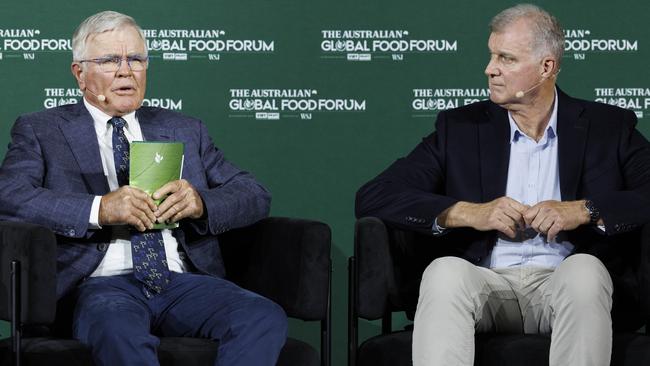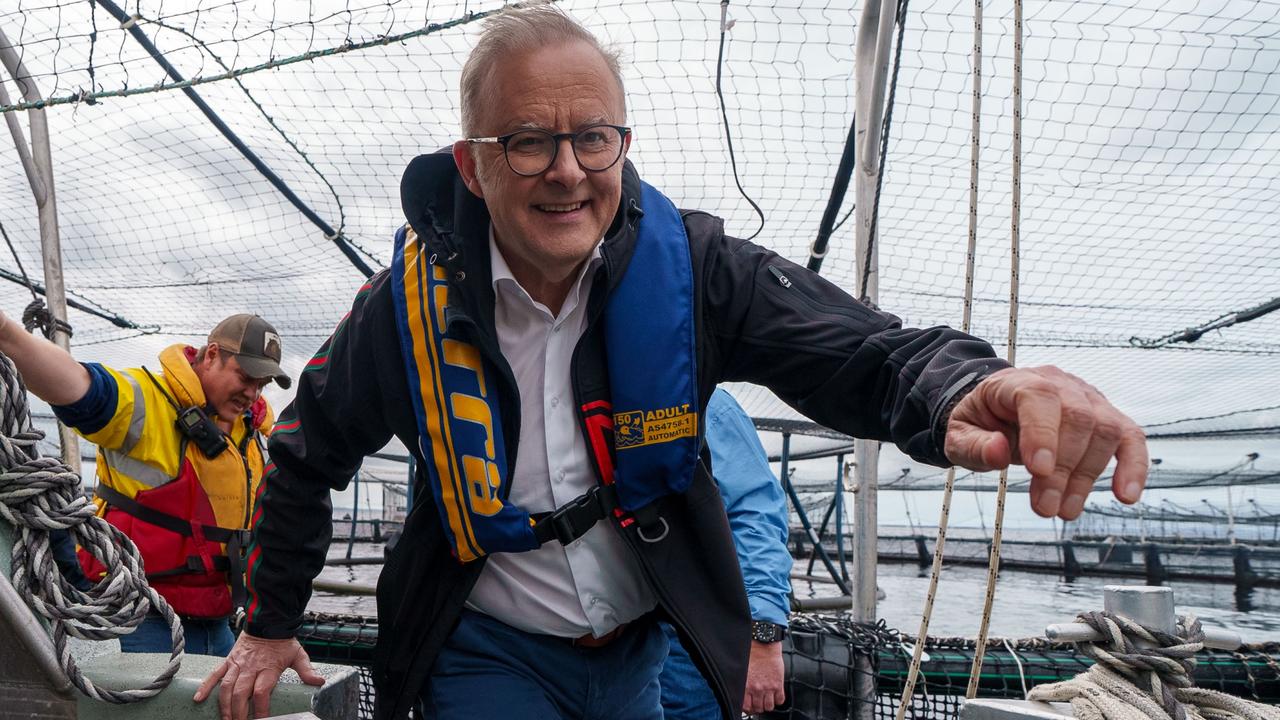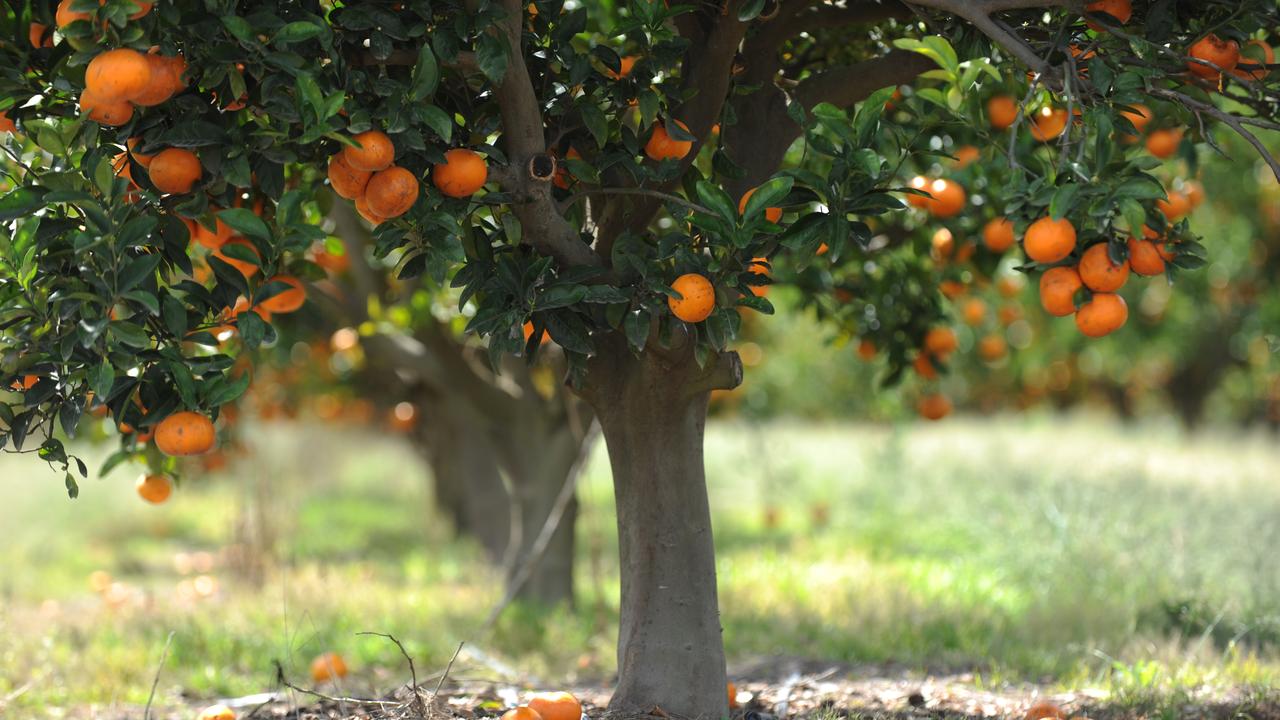Pastoralists have warned against a Denmark-style methane tax on cattle
Denmark will tax farmers $144 a cow in a bid to reduce methane emissions. Australian pastoralists say it would destroy the industry if replicated here.

Northern Australian beef baron Peter Hughes has warned the government against adopting a Denmark-style tax on methane, saying it would destroy the pastoral industry in Australia.
Speaking at The Australian’s Global Food Forum in Brisbane, the chief executive officer of Hughes Pastoral and Georgina Pastoral said the Danish government’s decision to implement a $144.5 a head yearly tax on the dairy industry by 2030 would have disastrous consequences if it was replicated here.
“I don’t think it is justifiable, but I’m very concerned about it,” Mr Hughes said.
“If the government moves that way, they will go a long way towards destroying the pastoral industry.
“When that happens, land values go down, no one wants to invest and it will turn into a gathering and harvesting operation where looking after the environment and the animals will come secondary.
“It would be a disaster if that happened.”
The Albanese government previously ruled out a methane tax on cattle but signed up to the global methane pledge to reduce emissions of the gas by 30 per cent by the year 2030.
So far, the government has left it up to the beef industry to come up with solutions to reduce methane emissions, while providing funding for research programs into new technologies.
A similar tax on agricultural emissions proposed for New Zealand enraged the dairy industry in that country, but the plan was scrapped by the new centre-right coalition government in June.
Dubbed the “burp tax”, the proposal led to nationwide protests by New Zealand farmers worried about how the tax would affect their livelihoods.

Similar protests have taken place throughout Europe, where farmers have converged on cities with tractor blockades, and voted in blocs to influence elections.
Mr Hughes, a leader in wagyu production whose businesses owns vast tracts of land in northern Australia, said the cattle industry was in a strong place for future growth.
He said the fledgling cotton industry in northern Australia would provide opportunities through supplying nutritious cottonseed to feedlots, which in turn could provide a stable supply of fattened cattle to meat-processing facilities.
Mr Hughes said he was confident that Australian meat processors could increase their processing capacity to cope with the expanded national cattle herd.
“Usually when the processing industry is confronted with this they cope and find ways,” he said.
“I’m sure they’ll get through it.”
From record highs two years ago, farm incomes for specialist beef producers fell by 66 per cent in 2023–24, due to a mass sell-off of cattle from eastern producers who were preparing for a forecast drought.
TRT Pastoral Group chief executive Tim Roberts-Thomson, whose enterprise is based in Victoria and Tasmania, said low cattle prices over the past year had challenged the industry, but his operation had benefited from diversification.
“In our northwest Tasmanian properties, we had dairy infrastructure on them and when the beef price crashed we were able to fire these dairies up pretty quickly,” he said.
“We were fortunate we had those dairies and to allow for some diversification.”
Mr Roberts-Thomson said the herd rebuilding phase in the US and Brazilian cattle industries offered potential for Australian producers to increase their presence in global markets, particularly in China, South Korea and Japan.
“I think there’s a really healthy future for the beef industry in the next few years,” he said.
Mr Roberts-Thomson said biosecurity posed the greatest risk to the industry, and of particular concern was foot-and-mouth disease, which was circulating through neighbouring countries.





